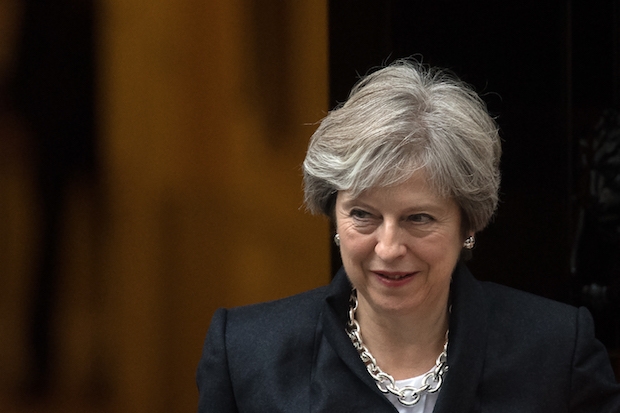After last month’s purge of the Department for Education and following months of speculation among Tory MPs, No 10 have finally showed their hand on university education. The Prime Minister is to launch a year-long review of university and adult technical education. The aim is to de-toxify the party among young voters who are worried about the current levels of student debt – be it by appealing to their parents and grandparents.
On the menu of ideas being mooted are the return of university maintenance grants ( or ‘maintenance support’), lower tuition fees for courses that are cheaper to run such as arts degrees and cuts to student loan interest rates. There’s also talk of revamping vocational education and increasing the options to those who don’t wish to go to university – something which is long overdue. In a speech today in Derbyshire, May is expected to ‘acknowledge that many young people, their parents and grandparents, have serious concerns – which she shares – about aspects of the current system’. She will also say that social mobility ‘is not made easier by a funding system which leaves students from the lowest-income households bearing the highest levels of debt’.
So far the university funding proposals have received a mixed reaction in the press. Meanwhile, Justine Greening – the education secretary May sacked in last month’s reshuffle – has warned that pricing degrees based on cost could actually make social mobility worse. This is because ‘young people from more disadvantaged backgrounds feel like they ought to do one of the cheaper degrees, rather than doing the degree they actually want that will unlock their potential in the future’. Given that the more expensive degrees tend to be the ones that lead to the more financially lucrative careers, she may have a point.
This is why May ought to tread with caution before rushing to bash the current system. There are some in No 10 who are adamant that Labour’s pledge to abolish tuition fees was key to the party’s better-than-expected snap election result. But a Corbyn-lite alternative is going to please no-one. Those young voters who wish to see tuition fees scrapped are hardly likely to switch to the Conservatives because they are reduced slightly. That’s not to say that the current system is perfect – there are no doubt some aspects which can be revised to make it fairer but May must be careful that she does not concede the argument to Corbyn’s Labour in the process.
For one, the frequently-cited claim (by Corbyn and others) that tuition fees should be axed because they put off students from disadvantaged backgrounds just doesn’t add up. The number of young people from poorer backgrounds now going to university in England is at a record level – up 43pc since 2009. Meanwhile, in Scotland where tuition fees were abolished in 2007, student numbers have been capped as a result and the poorest have suffered. University education is free but student numbers are effectively rationed so university access has narrowed rather than widened. 18-year olds from a deprived background in England are more than 50 per cent more likely to go to university than their Scots contemporaries. As Labour’s Phil Wilson put it, abolishing tuition fees is ‘a middle-class offer to young people on the whole from middle-class backgrounds’.
The price of scrapping tuition fees is estimated to be £11 billion (and wiping off student debt would cost £60bn). The Tories are not about to go that far – but changes could be costly and that money could go towards solving the housing shortage or funding the NHS. Ultimately the Conservatives ‘youth problem’ effects those from 40-years-old and downwards. The top issue for the majority of these voters is not the cost of university – which remain free at the point of use. It follows that any policy decisions must be well thought out rather than out of panic about the election result. There’s a progressive argument to be made for tuition fees – it’s time the Tories made it.







Comments